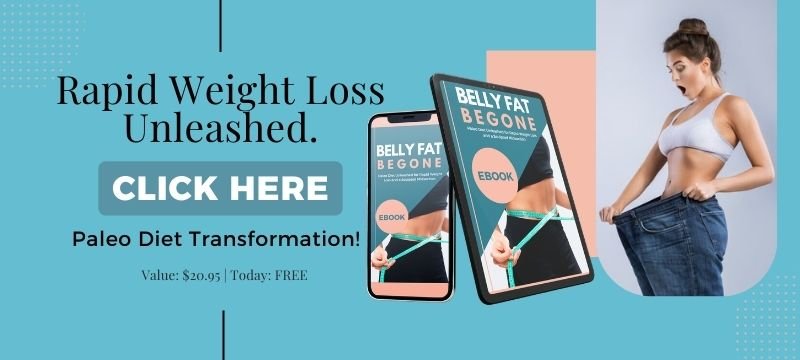Effective Postpartum Weight Loss Tips for Working Moms: Navigating the Journey to Health and Wellness
Becoming a mother is undoubtedly one of life’s most beautiful and rewarding experiences.
However, it also brings with it a series of challenges, and one of them is postpartum weight.
For working moms, in particular, shedding those extra pounds can feel like an uphill battle.
The combination of a busy schedule, sleepless nights, and the need to nourish a growing baby often takes precedence over personal health.
In this article, we will explore the challenges faced by working moms in their postpartum weight loss journey.
The Challenges of Postpartum Weight Loss for Working Moms
Time Constraints: Juggling between a full-time job and motherhood leaves very little time for self-care, including exercise and meal preparation.
Working moms often find themselves caught in a relentless cycle of work, baby care, and household chores, leaving no room for fitness routines.
Sleep Deprivation: The irregular sleep patterns that come with caring for a newborn can wreak havoc on a mother’s metabolism.
Sleep deprivation can lead to increased cravings for sugary and high-calorie foods, making it challenging to maintain a balanced diet.
Stress: Balancing work responsibilities with the demands of a new baby can be incredibly stressful.
Elevated stress levels trigger the release of cortisol, a hormone associated with weight gain, especially around the abdomen.
Breastfeeding: While breastfeeding can aid in postpartum weight loss, it also increases hunger and calorie requirements.
Striking the right balance between nourishing the baby and achieving personal weight loss goals can be complex.
Body Image Pressure: Society often places unrealistic expectations on women to “bounce back” to their pre-pregnancy bodies shortly after giving birth.
This pressure can take a toll on a working mom’s mental health, making it even harder to focus on gradual, sustainable weight loss.
The Importance of a Balanced Approach to Weight Loss

Achieving postpartum weight loss as a working mom should not be about crash diets or extreme exercise regimens.
Instead, it’s crucial to adopt a balanced approach that prioritizes both short-term and long-term well-being.
Health Over Speed: Rather than fixating on rapid weight loss, working moms should prioritize their health and that of their baby.
Gradual, sustainable weight loss is not only healthier but also more likely to be maintained over time.
Nutrition: A balanced approach involves nourishing the body with nutritious foods that provide essential nutrients for both mother and baby.
Crash diets can deprive the body of these nutrients and may even affect breast milk quality.
Physical Activity: Incorporating exercise into daily routines, even in short bursts, can contribute to postpartum weight loss.
However, it’s important to choose activities that align with your physical condition and energy levels.
Setting Realistic Goals and Expectations
Setting achievable goals and expectations is a fundamental aspect of postpartum weight loss for working moms.
Realistic Weight Loss Goals: Understand that your body has gone through significant changes during pregnancy, and it’s entirely normal to take time to return to your pre-pregnancy weight.
Aim for gradual weight loss of around 1-2 pounds per week.
Flexibility: Be flexible with your approach. Some days, you may have more time and energy for exercise and meal preparation, while others may be more challenging.
Adapt your plan to fit your daily life.
Self-Compassion: Avoid self-criticism and negative self-talk. Becoming a mother is a monumental achievement, and your body has done something incredible.
Celebrate small victories and practice self-compassion on the journey to postpartum weight loss.
Understanding Postpartum Weight Loss

After the joyous arrival of a new baby, many mothers are eager to shed the post-pregnancy weight and return to their pre-baby bodies.
However, understanding the intricate factors at play in postpartum weight loss is crucial.
Hormonal Changes Post-Pregnancy
One of the most significant factors influencing postpartum weight is the hormonal upheaval that accompanies pregnancy and childbirth.
Hormones play a pivotal role in regulating metabolism, appetite, and fat storage, and their levels fluctuate dramatically post-pregnancy.
Prolactin: After childbirth, prolactin, a hormone responsible for milk production, surges in the body.
While this is essential for breastfeeding, it can also stimulate hunger, making new mothers more prone to cravings and increased calorie consumption.
Oxytocin: Often called the “love hormone,” oxytocin helps with uterine contractions during labor and fosters the mother-infant bond.
However, it may also contribute to postpartum weight retention by promoting fat storage.
Insulin: Pregnancy increases insulin resistance in the body, which can persist for some time after childbirth.
This can lead to difficulties in regulating blood sugar levels and weight gain.
Understanding these hormonal changes is the first step in developing a postpartum weight loss strategy that works with your body’s natural processes.
The Role of Breastfeeding in Weight Loss

Breastfeeding is not only a beautiful way to bond with your baby but can also aid in postpartum weight loss. Here’s how:
Calorie Burn: Breastfeeding burns calories, as your body requires extra energy to produce milk.
This can contribute to weight loss, especially in the early postpartum months.
Uterine Contractions: While breastfeeding, your body releases oxytocin, which helps the uterus return to its pre-pregnancy size.
This process can assist in shedding some of the postpartum weight.
Nutrient Transfer: Breastfeeding promotes the transfer of nutrients from your body to your baby, helping to deplete fat stores accumulated during pregnancy.
However, it’s important to remember that not all women experience significant weight loss while breastfeeding.
Individual factors like genetics, diet, and activity levels also play a crucial role.

Metabolism and Its Impact on Postpartum Weight
Metabolism is the body’s engine for burning calories and is influenced by various factors, including age, genetics, and hormonal changes.
Understanding your metabolism can be essential for postpartum weight loss.
Basal Metabolic Rate (BMR): BMR is the number of calories your body needs at rest to maintain basic functions like breathing and digestion.
It tends to decrease with age, which can make postpartum weight loss more challenging.
Muscle Mass: Muscle burns more calories than fat at rest, so maintaining or increasing muscle mass through strength training can help boost metabolism.
Hormonal Effects: Hormonal changes, such as those related to thyroid function, can affect metabolism.
Thyroid imbalances may slow down metabolism and hinder weight loss efforts.
Understanding your metabolism and its potential changes post-pregnancy can help you make informed decisions about your diet and exercise regimen.
While hormonal changes can present challenges, they are not insurmountable, and with the right approach, it is possible to achieve postpartum weight loss goals in a healthy and sustainable manner.
Meal Planning for Healthy Weight Loss

Achieving postpartum weight loss as a working mom requires a thoughtful approach to meal planning.
Nourishing your body with nutrient-dense foods, implementing healthy snacking strategies, and practicing portion control are key components of a successful postpartum weight loss plan.
In this section, we will explore these aspects in detail to help you make informed and satisfying dietary choices.
Nutrient-Dense Meal Choices
Breakfast Ideas
Breakfast is the most important meal of the day, providing the energy you need to kickstart your busy morning. Opt for nutrient-dense options that keep you full and energized:
- Oatmeal: A bowl of oats topped with fresh fruits, nuts, and a drizzle of honey provides complex carbohydrates, fiber, and protein.
- Greek Yogurt Parfait: Layer Greek yogurt with berries, granola, and a sprinkle of flaxseeds for a protein-packed and fiber-rich breakfast.
- Avocado Toast: Whole-grain toast topped with mashed avocado, a poached egg, and a dash of hot sauce is a satisfying and nutritious option.
- Smoothies: Blend spinach, banana, Greek yogurt, and almond milk for a nutrient-packed and portable breakfast.
Lunch Options
For a midday meal that sustains your energy and supports your weight loss goals, consider these options:
- Grilled Chicken Salad: Load up on leafy greens, colorful vegetables, and grilled chicken breast. Dress with a light vinaigrette.
- Quinoa Bowl: Combine cooked quinoa with roasted vegetables, chickpeas, and a tahini dressing for a balanced and filling meal.
- Wrap or Sandwich: Choose whole-grain wraps or bread and fill them with lean proteins like turkey or tofu, along with plenty of veggies.
- Leftovers: Repurpose healthy dinner leftovers for a quick and nutritious lunch option.
Dinner Recipes
Dinners should be balanced and satisfying without being heavy. Try these recipes:
- Baked Salmon: Season salmon with herbs and spices, then bake it alongside roasted vegetables for a flavorful and nutritious dinner.
- Stir-Fry: Create a vegetable-packed stir-fry with lean protein (chicken, shrimp, or tofu) and a light soy or teriyaki sauce.
- Vegetable Curry: Make a hearty vegetable curry with plenty of spices and serve it with brown rice or quinoa.
- Zucchini Noodles: Swap regular pasta for zucchini noodles and top them with a tomato-based sauce and lean protein.
Healthy Snacking Strategies
Snacking can be a double-edged sword when it comes to weight loss.
On one hand, it can help maintain energy levels and prevent overeating during meals.
On the other hand, mindless snacking on unhealthy choices can hinder progress.
Here are some healthy snacking strategies:
- Plan Snacks: Pre-portion healthy snacks like cut-up fruits, raw nuts, or Greek yogurt to have readily available when hunger strikes.
- Mindful Snacking: Pay attention to your body’s hunger cues and avoid snacking out of boredom or stress.
- Protein-Rich Snacks: Opt for protein-rich snacks like hard-boiled eggs, cottage cheese, or hummus with veggies to keep you feeling full longer.
- Healthy Hydration: Sometimes, thirst can be mistaken for hunger. Drink water or herbal tea before reaching for a snack.
Importance of Portion Control in Effective Postpartum Weight Loss Tips for Working Moms
Portion control is a critical aspect of any successful weight loss plan. It helps you manage calorie intake without feeling deprived.
Here are some tips for practicing portion control:
- Use Smaller Plates: Switching to smaller plates can visually trick your mind into thinking you’re eating more than you are.
- Measure and Weigh: Invest in measuring cups and a kitchen scale to accurately portion out food.
- Listen to Your Body: Pay attention to your body’s hunger and fullness cues. Stop eating when you’re satisfied, not when your plate is empty.
- Avoid Eating Straight from Packaging: Pour snacks into a bowl or plate rather than eating directly from the bag, which can lead to mindless overeating.
Incorporating these meal planning strategies into your daily routine can make a significant difference in your postpartum weight loss journey.
Remember that the goal is not to restrict yourself but to make informed and nourishing choices that support your health and well-being as a working mom.
Hydration and Its Role in Weight Loss

Hydration plays a pivotal role in postpartum weight loss, especially for breastfeeding mothers.
In this section, we will explore the importance of staying well-hydrated while breastfeeding, how water aids in weight loss, and creative strategies to increase your water intake effectively.
Staying Hydrated While Breastfeeding
Increased Fluid Needs: Breastfeeding requires extra fluid to support milk production. Dehydration can affect milk supply and the overall health of both mother and baby.
Aim to drink more fluids than usual to meet these increased needs.
Thirst Cues: Pay attention to your body’s thirst cues. Breastfeeding can be dehydrating, and you may find yourself feeling thirstier than usual.
Keep a water bottle nearby during nursing sessions to stay hydrated.
Hydration and Milk Quality: Proper hydration is essential for maintaining the quality and quantity of your breast milk.
When you’re well-hydrated, your milk supply is more likely to be consistent and nutritious.
How Water Aids in Weight Loss
Appetite Control: Drinking water before meals can help control your appetite.
It creates a feeling of fullness, reducing the likelihood of overeating during meals or snacking between them.
Metabolism Boost: Staying adequately hydrated is essential for optimal metabolic function. Dehydration can slow down metabolism, making it harder to burn calories and lose weight.
Calorie-Free Hydration: Unlike sugary drinks or high-calorie beverages, water is calorie-free.
Replacing sugary or calorie-laden drinks with water can significantly reduce your daily calorie intake.
Detoxification: Water aids in the body’s natural detoxification processes by flushing out waste and toxins.
This can promote overall health and support weight loss.
Creative Ways to Increase Water Intake
Increasing your water intake can be a challenge, but there are creative strategies to make it easier:
Infused Water: Add natural flavor to your water by infusing it with fruits, herbs, or cucumbers. This makes water more appealing and refreshing.
Hydration Apps: Use smartphone apps to set reminders to drink water regularly throughout the day. These apps can help you stay on track with your hydration goals.
Herbal Teas: Herbal teas, both hot and cold, count towards your daily fluid intake. Experiment with different flavors to find ones you enjoy.
Fruit-Infused Ice Cubes: Freeze small pieces of fruit or herbs in ice cube trays, then add these flavored ice cubes to your water for a hint of taste as they melt.
Hydrating Foods: Incorporate foods with high water content, like watermelon, cucumber, and oranges, into your diet. These foods can contribute to your overall hydration.
Water Tracking Journal: Keep a journal to record your daily water intake. It can help you monitor your progress and identify patterns in your hydration habits.
Set Goals: Set daily hydration goals and celebrate when you meet them. Small rewards or positive reinforcement can motivate you to drink more water.
Hydration Challenge: Challenge yourself to drink a certain amount of water each day and enlist a friend or family member to join you.
Competition and accountability can be motivating.
Remember that individual hydration needs vary, so it’s essential to listen to your body’s cues.
While it’s crucial to stay hydrated for overall health and weight loss, it’s equally important not to force excessive water intake, as it can lead to overhydration, a condition known as hyponatremia.
Balance is key, and by staying well-hydrated in a sustainable way, you can support your postpartum weight loss journey while maintaining good health for both you and your baby.
Conclusion Effective Postpartum Weight Loss Tips for Working Moms
Becoming a mother is a remarkable journey filled with joys, challenges, and transformations, and postpartum weight loss is just one of the many aspects of this incredible experience.
For working moms, balancing the demands of a career and a growing family can make the journey to shedding those post-pregnancy pounds uniquely challenging.
Throughout this article, we’ve explored the complexities of postpartum weight loss, emphasizing the importance of a balanced approach, realistic goal setting, and the role of hydration.
As we conclude, let’s reflect on the journey, its long-term benefits, and offer encouragement to all the amazing moms on their weight loss journey.
The Journey of Postpartum Weight Loss as a Working Mom
The path to postpartum weight loss as a working mom is undoubtedly demanding, but it’s also an opportunity for personal growth and self-care.
It’s a journey where you’ll learn to navigate your priorities, discover your body’s resilience, and find strength you never knew you had.
It’s not just about shedding pounds; it’s about reclaiming your health, feeling confident in your skin, and setting a positive example for your child.
As you juggle the responsibilities of your career and motherhood, remember that every small step counts.
Be patient with yourself, and don’t forget to celebrate your successes, no matter how minor they may seem.
The journey may have its ups and downs, but each day brings you closer to your goals.
The Long-Term Benefits of a Balanced Approach
Adopting a balanced approach to postpartum weight loss offers benefits that extend far beyond the numbers on the scale.
It sets the foundation for a healthier and more sustainable lifestyle, not just for you but also for your family. Here are some long-term benefits to keep in mind:
Healthy Habits: The habits you cultivate during your postpartum weight loss journey can become a permanent part of your life.
They set a positive example for your children and encourage them to make healthy choices.
Improved Well-Being: Prioritizing nutritious meals, hydration, and regular exercise can enhance your overall well-being.
You’ll have more energy, better mental clarity, and a stronger immune system.
Emotional Resilience: The journey to postpartum weight loss can also build emotional resilience.
You’ll learn to manage stress, practice self-compassion, and develop a healthier relationship with food and your body.
Positive Body Image: A balanced approach encourages a positive body image. It helps you appreciate your body for what it can do rather than focusing solely on appearance.
Preventative Health: Maintaining a healthy weight can reduce the risk of various health conditions, including heart disease, diabetes, and certain cancers.
Encouragement for Other Moms on Their Weight Loss Journey

To all the incredible moms embarking on their postpartum weight loss journey, know that you are not alone.
Countless mothers around the world are navigating similar challenges and victories.
Here are some words of encouragement:
- You Are Strong: Motherhood has already shown you the depths of your strength. Trust in your ability to overcome obstacles on this journey.
- Small Steps Matter: Progress is not always linear. Celebrate the small victories, and remember that every healthy choice you make is a step in the right direction.
- Self-Care Is Not Selfish: Taking time for self-care, including exercise and mindful eating, benefits both you and your family. Prioritizing your health is an act of love.
- Seek Support: Don’t hesitate to seek support from loved ones, friends, or professionals. Sharing your journey can provide motivation and accountability.
- Embrace Balance: A balanced approach allows you to enjoy life while working towards your goals. It’s okay to have treats and days when you indulge – these are part of a healthy, balanced life.
- Your Journey, Your Pace: Your postpartum weight loss journey is unique. Don’t compare yourself to others. Focus on your progress and what feels right for you.
In closing, remember that your postpartum weight loss journey is about more than just numbers; it’s about your well-being, your health, and your self-care.
Embrace the balance, be patient with yourself, and know that you have the strength to achieve your goals as you continue to embrace the beautiful journey of motherhood.





